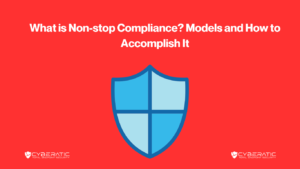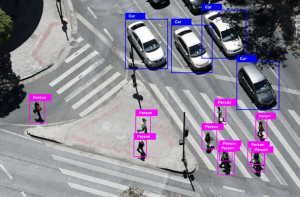Cyber War: Ukraine Proves It Needs No Border
On July 17, 2015, the personal e-mail accounts of high ranking officers in the Ukrainian military were hacked by hackers allegedly supported by Russia. The personal and work e-mail accounts of Ukrainian armed forces General Staff deputy chief Colonel Ilya Nikolayevich Ostapenko and his deputy, Major-General Alexei Dmitrievich Kulchitsky, were among those compromised by alleged Russian hackers that day, along with several other top Ukrainian officials and military personnel’s private email addresses and passwords. Both Ostapenko and Kulchitsky are involved in planning operations against pro-Russian separatists in Ukraine’s Donetsk region.
Global Internet
As our dependency on cyber space grows, so too do cyber security risks. In an increasingly interconnected world, hackers no longer need to cross international borders to wreak havoc and influence foreign policy, as was clearly demonstrated by a recent attack on Ukraine’s electrical grid that left more than 200,000 people without power for several hours. This is what we now call advanced persistent threats (APTs), and they are an increasing threat not only to critical infrastructure
but also to businesses everywhere. Businesses must take advanced protective measures immediately if they hope to protect their online presence. Technology continues to grow in complexity each year with APTs being even more secretive and sophisticated than ever before; traditional antivirus software is inadequate in protecting against modern threats.
DDoS Attacks

The war is officially online. This week, Russian government-backed hackers began launching massive Distributed Denial of Service (DDoS) attacks against major Ukrainian websites in an effort to cripple parts of their infrastructure. The coordinated attack was allegedly part of Russia’s ongoing incursion into eastern Ukraine, according to a statement from U crania Security Services head Valentín Nalyvaichenko.
Hacking Power Plants
According to a report from Bloomberg Businessweek, two utility companies in Ukraine were recently hacked by an unknown entity. The result? Blackouts that left about 225,000 people without power for at least six hours. While hacking isn’t new (in fact, it is quickly becoming a common tool for espionage), attacks like these are particularly concerning because of their potential to be much more dangerous. For example, what if hackers used their access to disrupt power in other countries? Or worse, what if they aimed to shut down nuclear plants—the United States alone has 99 operating reactors and four new ones currently under construction.
Terrorism and Crime
Terrorists and criminals know no borders. Just as organized crime is a threat to all nations, cyber warfare is too. The fact that it can originate anywhere—and strike anyone, with very little warning—is what makes it so dangerous and scary. Such was clearly demonstrated by Russian-backed hackers targeting Ukraine’s power grid in 2015, effectively knocking out several power stations in Kiev for several hours and leaving roughly 200,000 people without electricity (at a time when temperatures were at -15 Celsius).
Threats to National Security

For decades, Washington has trumpeted its ballistic missile shield as a cornerstone of American security. In 2013, however, cyberattacks began to rival missiles as a major threat to national security. The military’s response? Not an enhancement of cyber defenses but rather an effort to build more robust offensive capabilities.
The United States cyber war
While Russia’s involvement in a cyberattack on Ukraine is not unexpected, it still warrants concern. According to reports from The New York Times, many countries knew of Russian preparations for a strike on infrastructure surrounding Crimea as far back as three weeks before they began carrying out these attacks. The United States of cyber war had an opportunity to prepare more thoroughly by sharing information with our allies in advance and taking measures to secure our own systems. We must remember that cyberspace is just another battlefield and we need to take every measure possible to keep our country safe from potential attacks.
What is in your control?

The US, UK and Australia have accused Russia of a cyber attack on infrastructure in Ukraine that disrupted power to about 250,000 people. If true, it would be just one more example of how Russia is using its cyber warfare capabilities to further its own interests. The incident in question involved a few different components that indicate a coordinated, structured approach. First, there was an overwhelming amount of traffic directed at an internet provider’s server. This is called a distributed denial-of-service (DDoS) attack; while on one level it’s fairly unsophisticated and primitive, on another level it can be devastating to certain organizations—particularly if they’re underprepared for such an event.
Balancing National Security with Human Rights
A computer virus called ‘Black Energy’ is believed to have been used to disrupt electricity grids, similar to Stuxnet. Cyber warfare has had a significant impact on life in many countries, including South Korea and Iran. The questions surrounding cyber security are what rights do we give up for protection? Is privacy a right or something that needs to be sacrificed for national security? In a world where hackers can get into even secure systems, how can we build defenses without potentially killing people in other parts of world? Does being connected by technology at all times make us safer or more vulnerable? How important is it that governments share information between them? cyber war







